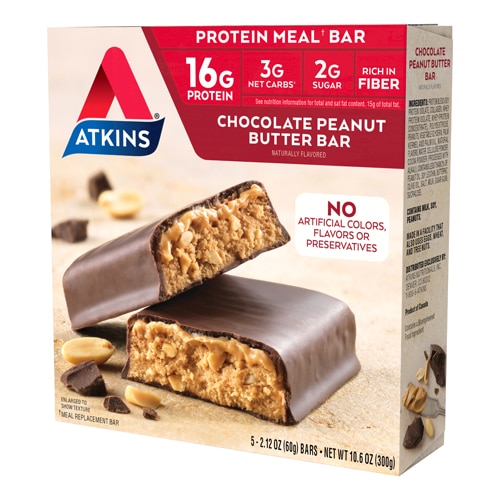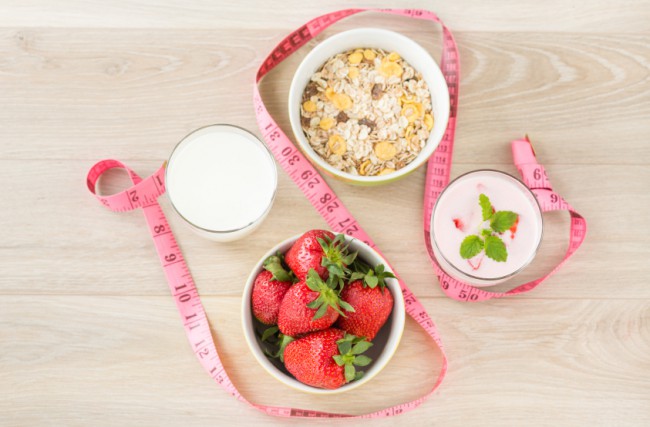Many of us are drawn to the convenience of meal replacement products--those protein shakes, powders and bars that mean no calorie counting, menu studying or grocery aisle confusion. So, is the grass really greener on the pre-packaged side? Consider these five important questions before jumping on the meal replacement bandwagon.
What’s your motivation?
If the thought of meal planning, pre-prepping and portion sizes gives you anxiety, you are not alone. This very fear often tempts dieters to reach for meal replacement shakes, bars or powders. The proportioned items are clear on what nutrients are offered and in what amount. The powders may take a bit more preparation; however, the instructions are generally clear and concise.
Another motivating factor for foregoing meal prep in favor of meal replacement products is time. Busy lives and non-stop responsibilities are the norm for many, resulting in the best diet plan involving products that are transportable and easy to eat. If the alternative to a meal replacement product is a meal skipped, the dietitian vote is in favor of choosing a nutritious meal replacement option!
Where do you fall on the spontaneity scale?
Despite the ease and convenience of these products, you should still consider your other personal tendencies. If you get bored eating the same foods over and over, you may not find meal replacements to be a long-term solution. Meal replacement products that fit your needs may be restrictive on flavors offered or ways to use. If this consistency results in your reaching for not-so-nutritious foods or drinks instead of (or in addition to) the meal replacement product, there may not be much of an advantage.
What’s included, what’s missing?
Not all meal replacements are created equal, nor does any one product offer everything that’s offered in a well-balanced meal of whole foods. In some products, the saturated fat and sugars may be high while the fiber content is low. Also, meal replacement products can be lacking in antioxidants as they are most commonly found in whole foods, namely fruits and vegetables. Here are a few guidelines to use when choosing one meal replacement product over another:
- Avoid meal bars with sugar in the first 2-3 ingredients
- Avoid bars with trans fat
- Pair bar with a fruit or veggie to add fiber
- 250-350 calories
- ? 15g of fat
- ?15g sugar
- ? 8g protein
- ? 4g fiber
Can you find balance?
So, if you decide that you would like to try a meal replacement product, consider these suggestions to keep things balanced.
- Do not use a meal replacement product for every meal; your total diet should contain at least 1200 calories a day if you are a woman or 1500 calories a day if you are a man.
- Plan your regular meals and snacks to fill gaps around the meal replacement; be sure to allow for vegetables, whole grains, lean protein and fruits each day.
- Speak to your physician before embarking on a total meal replacement diet, especially if you have a pre-existing health condition like diabetes, heart disease or kidney problems.
- Consider seeking the expertise of a registered dietitian who can help you evaluate the meal replacement options as well as how to build healthy eating behaviors and use weight loss products to maintain weight loss in a healthy way
- These products are not magic; nor can they guarantee sustainable results. The success with these products is more related to portion control and caloric reduction. If used, these products should be only be used for short periods of time and in conjunction with eating behaviors that include other balanced meals and snacks.




